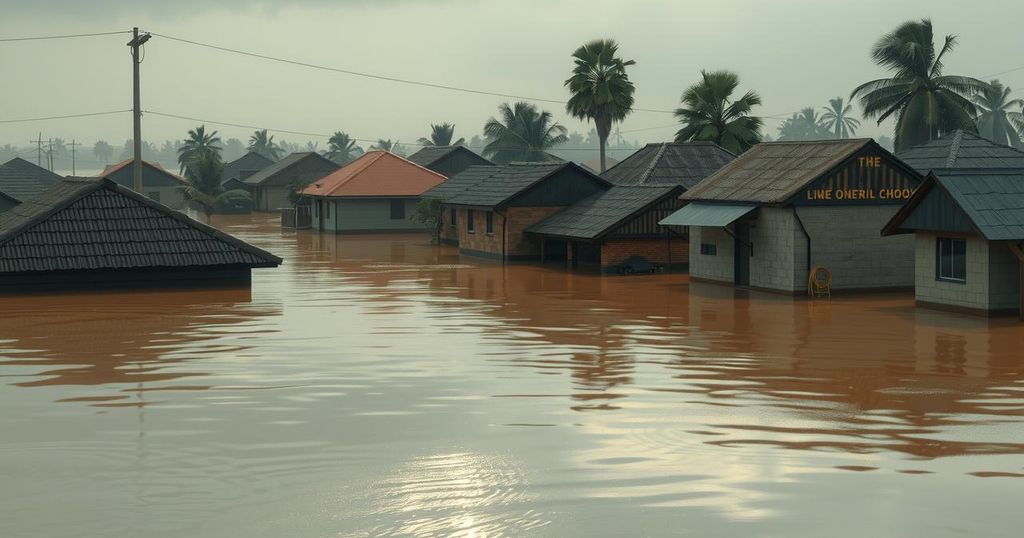Floods Kill at Least 111 as Northern Nigeria Battles Climate Change and Rainfall
Severe floods in Mokwa, northern Nigeria, have led to the deaths of at least 111 people. Officials fear the toll may rise as flooding, exacerbated by climate change and heavy rainfall during the wet season, inundates communities. Residents are struggling to salvage belongings while rescue operations continue amidst the destruction.
At least 111 individuals have lost their lives due to flooding in northern Nigeria, following a heavy downpour that struck the region early Friday. This incident occurred in Mokwa, a market town known for its vibrant agricultural exchanges with traders from the southern parts of the country. Officials are warning that the number of fatalities could rise as rescue operations continue to uncover more victims.
The Nigerian Hydrological Services Agency has not provided the exact rainfall measurements that fell during this disastrous night, leaving many in uncertainty about the full impact of the storm. Mokwa is located in Niger state, approximately 180 miles west of Abuja, and has been particularly vulnerable to climate-related challenges. These include prolonged dry spells and the repercussions of climate change, all of which heighten the risk of flooding during the usually brief wet season.
Social media platforms are flooded with images and videos showcasing the devastation: neighborhoods are submerged, with only rooftops visible above the murky waters. As the deluge recedes, residents are wading through waist-deep floodwaters, desperately trying to salvage their belongings or assist others in need. The community grapples with the devastating effects of this natural disaster, compounded by ongoing climatic issues that continue to plague the region.
The recent floods in northern Nigeria exemplify the severe impact of climate change on vulnerable communities. With at least 111 fatalities and ongoing rescue efforts, the situation remains dire. As heavy rainfall continues in a region already suffering from dry spells, urgent measures are needed to mitigate the risks associated with extreme weather events. Authorities have warned that without significant climate adaptation strategies, such tragedies are likely to recur in the future.
Original Source: nanaimonewsnow.com




Post Comment